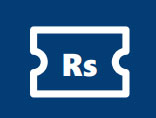The Mutual Corruption In Tendering
A Purchasing official, probably as the result of corruption, can manipulate the tendering process in a number of ways to benefit a favored contractor or supplier. These include leaking information regarding competing tenders, accepting late tenders, changing tenders, re-bidding work and so on.
Favoring the contractor
Purchasing officials can leak tender information from other bidders, or confidential pre-tender information, to a favored contractor giving him an unfair advantage in the tendering process. Such plan usually occurs as the result of corruption.
Submission of low bid
A tenderer can also submit a “low” bid with the understanding that the corrupt purchasing official will approve later contract amendments and price increases.
The mirage effect
In a poorly controlled purchasing office, an official with procurement responsibilities, or in accounts payable, or /and with the help of an outsider, can submit bills from a non-existent contractor. Normally mirage contractors claim to provide services or consumables, rather than goods or works that can be verified.
Dishonest contractors also can submit “bids” from fictitious bidders as part of tender rigging plan.
Mirage contractors plans occur more often than thought, and can be detected relatively easily through automated proactive fraud detection programs.
Substitution of products or materials
A contractor or supplier can substitute products or materials of lower quality than specified in the contract, or use counterfeit, defective or used parts, in order to increase profits or comply with contract time schedule.
The dishonest contractor might give gifts or favor to the inspecting authority or pay kickbacks to contracting officials to facilitate the plan, and will submit false documentation to conceal it.







